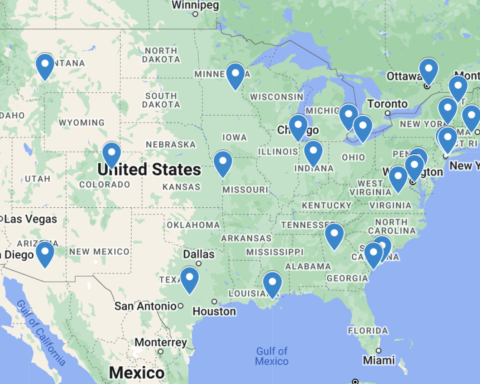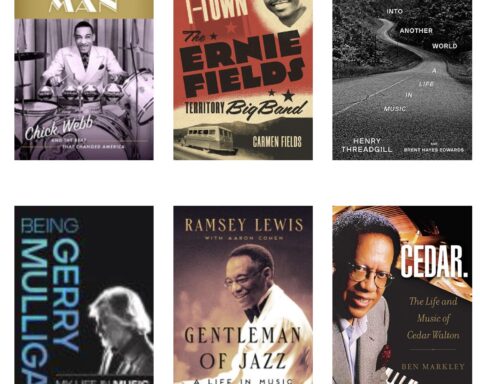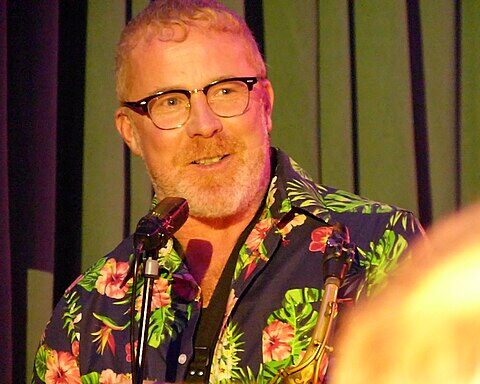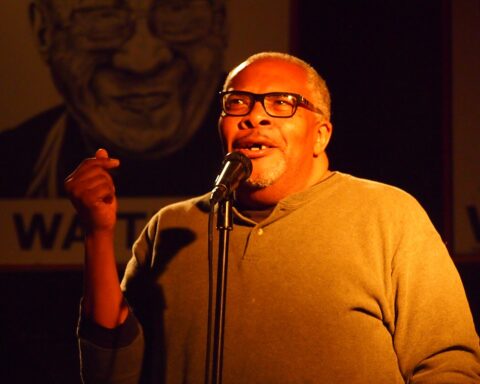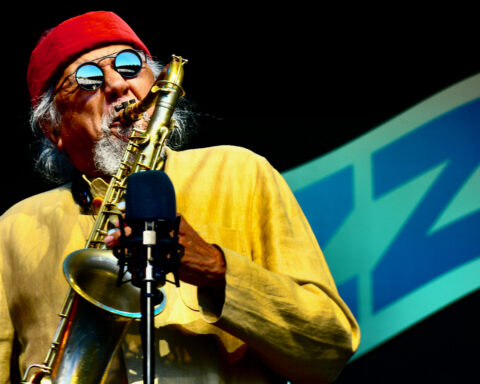A sometimes raucous gathering of 150 jazz-loving Bostonians filled a conference room at the
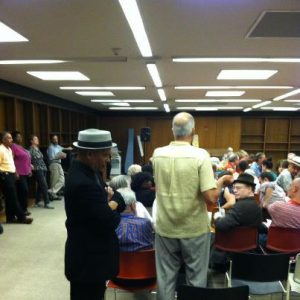
The nonprofit advocacy group JazzBoston convened the meeting to seek forward-looking solutions to the sudden absence of weekday evening and overnight jazz programming on the Boston airwaves, and to begin planning a campaign to unite listeners and identify volunteers to lead the work.
JazzBoston executive director Pauline Bilsky envisions JazzBoston’s role as that of coordinating the work of other independent groups and providing a central point of communication. It’s an approach that’s worked well for JazzBoston in the recent past, as for example with Jazz Week, the annual spring celebration that this year boasted of over 250 independently programmed events in metro Boston.
José Massó, longtime host of ¡Con Salsa! on WBUR-FM, and Professor Emmett Price of Northeastern University’s Department of Music and African American Studies, were the meeting’s moderators. Massó asked people to come forward with their ideas, and they did. As public meetings go, this was truly a wonder. Dozens of speakers came forth over the course of the evening, and all were positive, succinct, and supportive of each other. As a result, the meeting could accomplish its primary goal: getting started on a Boston jazz radio master plan.
Many who spoke were concerned listeners, fans of the music they had lost. But the room was crowded with musicians, educators, writers and broadcasters, and representatives of cultural organizations including the Massachusetts Office of Travel and Tourism, Harvard’s Office of the Arts, the Arts and Business Council of Greater Boston, the Boston Music Coalition, Boston Free
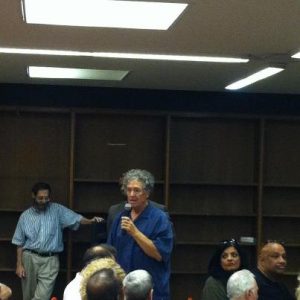
Radio, and others with a stake in the health of Boston jazz. Also in attendance were Eric Jackson and Steve Schwartz.
The ideas and comments broke down along several lines, some stretching beyond radio and into the realm of nurturing the local jazz culture.
- The Relationship with WGBH: Not unexpectedly, WGBH was the most-discussed topic of the evening, and opinions covered a wide spectrum. Some maintained further conversation with WGBH was a waste of time, while others advocated a “back to the bargaining table” approach. Saxophonist Ken Field, who organized the jazz funeral at WGBH a few weeks ago, proposed staging a weekly musical event outside the station studio as a visible way to keep the pressure on WGBH.
Bilsky did announce that she, Price, and board member Mark Harvey will meet next week with Phil Redo, WGBH’s managing director, and Marita Rivero, the general manager of WGBH. At least one item on the agenda is how to avoid further reductions in scheduling—Eric Jackson is now on the air for only nine weekend hours per week.
- Arts, culture, and education: there was a strong emphasis on education, touching everything from the curatorial aspects of a good radio announcer to the importance of bringing live music into the schools, and supporting the music teachers working there. Indeed, the theme of “passing it on” arose often.
- Supporting the local scene: Many speakers, including both Jackson and Schwartz, voiced the need to include and showcase local musicians in any plan going forward. The radio, said saxophonist Arni Cheatham, is the best way to make a local group known in the community, and that makes radio critical to the local music’s development.
- Music station: There were numerous proposed approaches on how to fill the programming void left in the wake of the WGBH cutbacks. Tom Lucci, president of the board of directors at WICN-FM in Worcester, noted he’d bring his station’s signal into Boston if the FCC permitted it, and he’d be open to finding ways to bring some programming in via some other arrangement. Others suggested approaching other public stations, from the former jazz station WBUR, to the smaller college and community stations. And there were pitches for internet-only radio, despite its perceived shortcomings by a portion of the crowd.
- New media/social media: The crowd skewed to the older side, and the gap between the older “digital immigrants” and the younger “digital natives” was readily apparent. The older crowd wants a radio station, and didn’t want, as one speaker put it, “to be chained to a computer.” Some in the younger crowd spoke to the need for having music, and the jazz talk that goes with it, streaming to their digital devices, because that’s where they find their music.
The social media aspect was raised, too. There weren’t many bloggers in the room, nor were there many people sending tweets. Still, numerous attendees—probably most of the attendees—initially heard about the meeting in a blog post, or on Facebook, or by email. If JazzBoston, or anyone else, wants to identify and mobilize supporters for events such as this, they’d best do it through social media.
It is around these topics—culture and education, the WGBH relationship, working with local radio stations, integrating new media—that teams of volunteers will form.
Finally, Jackson and Schwartz each spoke briefly. Both thanked the community for the all the support they’ve received, and both urged a continued commitment to the local musicians. Schwartz was clearly moved by the sustained applause that rocked the room when he took the mic.
The turnout was excellent, probably better than the organizers expected. You could not ask for more from a kickoff meeting, and the Boston jazz community—there is no doubting that there is one—has a right to be proud. Now the work starts, and people in other cities where music programs are under fire will be watching the Hub’s progress.

